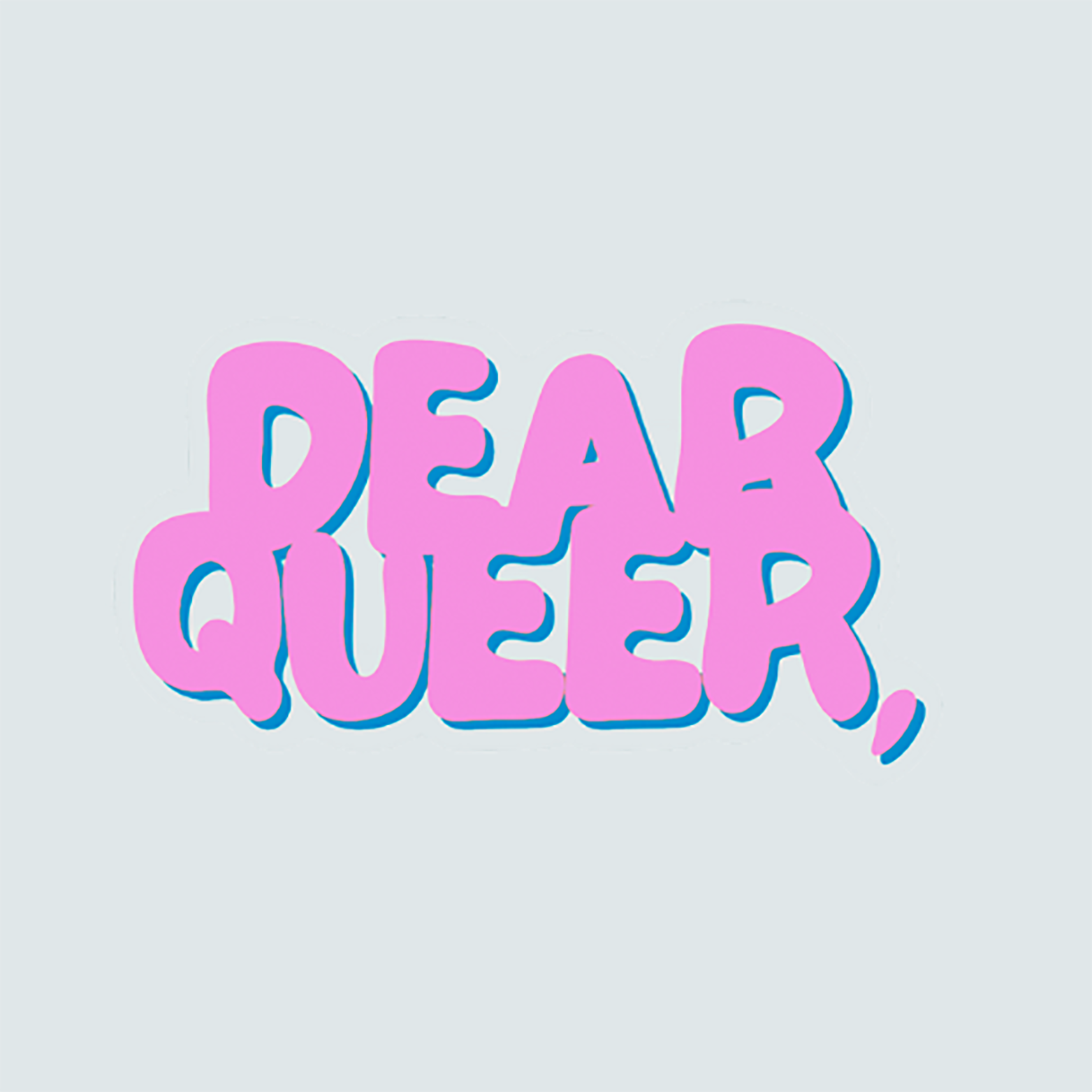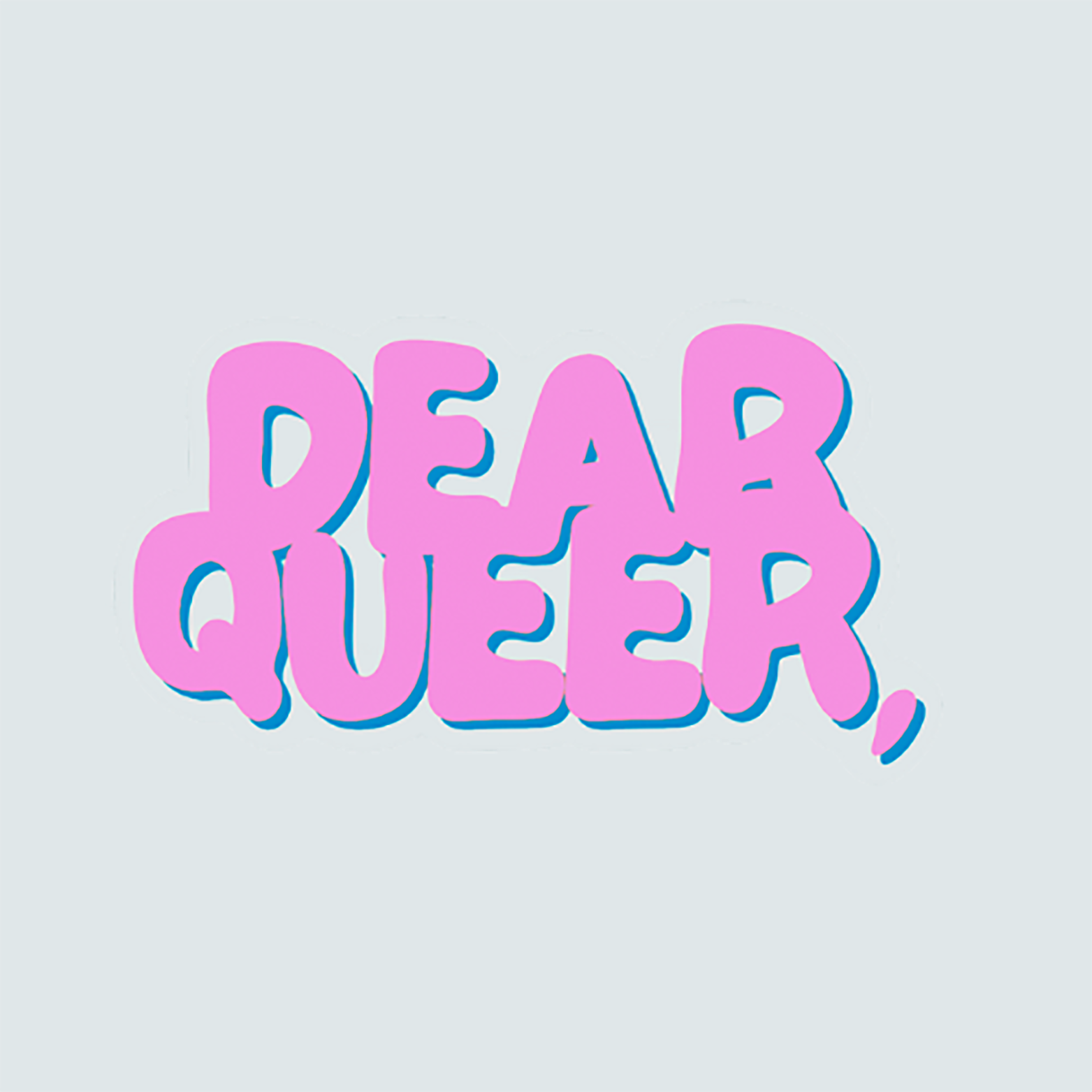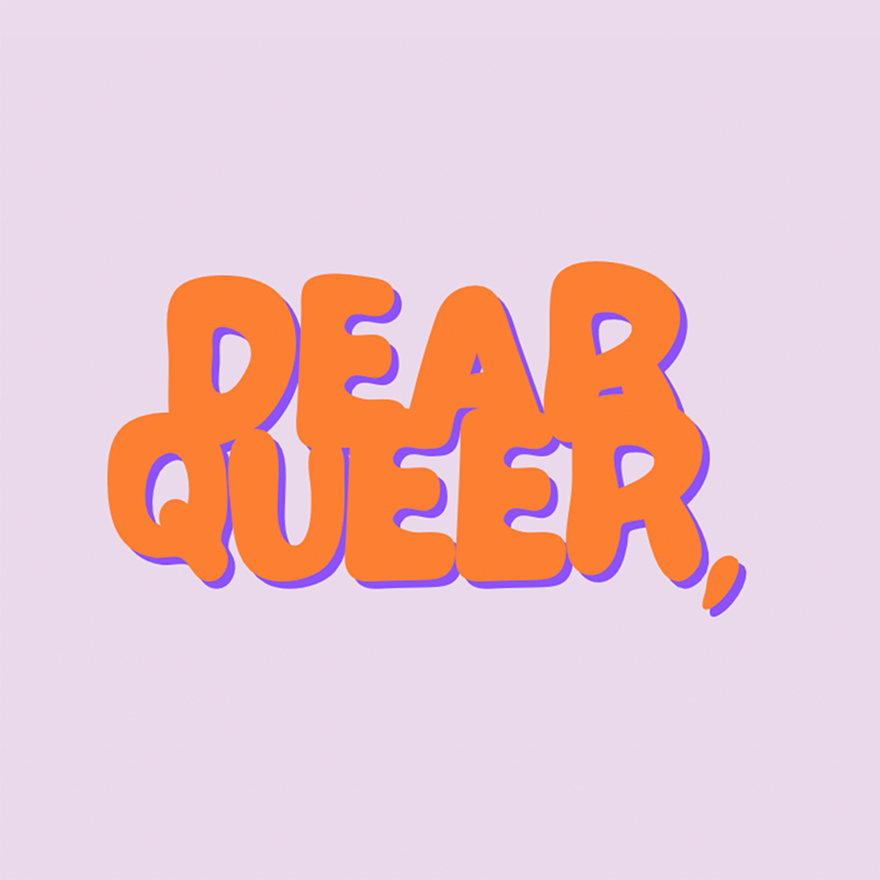Episode Transcript
[00:00:00] Speaker A: Hello.
How do I get it louder? Do I just need to talk louder? Okay, I'm just gonna talk louder. I'm gonna leave it around five ish.
Okay. Wish me luck.
If you have any questions, dear queer.
Okay. Hi, welcome back to dear queer. Lauren is unfortunately sick this week, and I'm gonna experiment with a little solo episode. So bear with me today. I want to talk a little bit more about coming out. I know we've done an episode on it already. It was our first episode. But recently I received a message on Instagram from someone who is coming out of a straight marriage and is struggling and is in the midst of it. And sometimes I forget.
Sometimes I forget that position because it feels so far away from where I am now.
But it was just such a good reminder that, you know, it's important to have, first of all, it's important to have our stories out there because someone needs it. Someone needs it. Someone is actively, probably, searching for some story that is similar to theirs so that they can feel some kinship and, like, someone understands them, or they can also see the other side of what they're currently experiencing, which is very difficult.
And so it just brought me back. It brought me back to those feelings and those moments and those difficulties. And I just wanted to talk a little bit more about that and kind of talk directly to those people that are currently leaving a straight marriage and might have children as well. That makes it a bigger and feel like a heavier. A heavier thing to experience as well. So where should I start?
I guess one of the questions I get a lot around that is, how do you know, especially if you've never actually been with a woman, then a lot of women are questioning like, well, how do I even know? And how can I make this huge move and leave this marriage or change my life so fundamentally if I've never experienced it before? Do I need to experience it to know?
And there's a few things you can do without having to experience it that I think will still be quite telling is, I mean, one thing is looking back at your previous relationships, or not even relationships, but friendships, too, with other women. So looking back at your, first of all, your relationships with men, thinking about, well, like, what intimacy was like for you, physical intimacy, were you, like, truly in it? Were you present in it? Or was it something that you just kind of experienced because you thought you should? And was there enjoyment there or not? And, I mean, again, that might be hard to compare, because really, if you haven't been with a woman or a queer person, you might not have anything to compare it to. So it could still be a little tricky. But I remember looking back at some women in my life that were friends and then thinking, oh, okay. I actually had a crush on them. I was fascinated by them. Not because I thought they were. Maybe it wasn't just interest, what are commonalities? But there was some physical thing there going on for me. And that's what that fascination with that, what that woman was about.
And I remember once a therapist too, giving me advice to, like, read blasbian erotica or even if I was to watch, you know, porn to think about then to just not to. Not to think I was over. I was too busy thinking, overthinking everything and justifying things and thoughts, but to actually get in touch with your body and see what it does for you. Like, if that's something that is. That turns you on and that you're attracted by, then it is something you will be turned on by in real life, too.
But sometimes we still feel like we need to still experience it and be with a woman before we can know for sure.
And that might mean needing to date even while you're still. Maybe in the straight marriage, while you're figuring it out. Maybe you need to be separated, or you might even need some language around that to give. To try and give yourself permission to then experience that.
And that might need be the final confirmation you need.
I felt like I needed that.
Looking back, though, now I can see how that was probably just me still overthinking and not being in touch with my body or emotions as much as I am now and feeling like I needed some proof or evidence when really had I just sat with myself for a bit and maybe truly reflected or meditated on it, which I know sounds kind of like, you know, witchy, but it's true. Whatever it takes to get you in touch with, like, whatever's going on in there deep down in your heart.
Because even if it's to acknowledge, I think I know, but I'm just not ready to admit it yet.
It might even just be that for you because there is some knowing inside you somewhere.
It's just. The question is, what is it going to take to get to you, to get you to that place of knowing? And it might be a conversation, it might be a meditation, it might be a book, it might be a kiss, right? Maybe you need all of those things.
So that's one thing I wanted to address, because that's a question I get a lot is like, well, how did you really know? Or how can I know if I haven't been with someone yet? Okay, so another thing that I see women struggling with when they're coming out of a straight marriage a lot is guilt. And I think it's taken me many years to tell the difference between guilt and shame. But there is an important difference. And guilt is when we think we've done something wrong, and shame is when we think that there's something wrong with us.
And I was very prone to guilt and shame growing up. I grew up in a christian orthodox religious upbringing. Grade school, high school, all that. Went to church on Sundays. And when I didn't, God did. I feel guilty, and so very prone to that. And guilt is something that can hold us back. We talked about this a little bit in our people pleasers episode, like the idea that we have to recognize saying no to something. For example, we might feel guilty about that, but the fact that we're going to feel guilty isn't the reason that we should do it instead and not actually listen to ourselves and say no.
So anyways, guilt is one of those things that can be heavy and paralyzing and debilitating and can keep you in place rather than moving forward.
Partly to get rid of the guilt, I'm trying to think of what I did when, like, specifically when I felt guilty. And I know, for example, I would feel guilty. Like, let's say I was trying to figure out, you know, I hadn't been with a woman, but I was trying to figure out if I was, if I would be into it and I would watch some porn or, like, read some erotica. And then I would just like. It was almost like this closing in that happened, and suddenly you're like, oh, no, I feel guilty now. This was bad, right? And looking back, I know that probably what I was feeling was actually closer to shame than guilt.
But it's about. I mean, first it's good to recognize that that's the emotion you're having or the feeling you're having. But then it's important to rewrite that story and to rewrite that narrative, right.
Shame, I find, at least in my experience, when I think back to people who are religious in my life, let's say, and. Or don't want to speak to me about being queer or don't ever bring anything up or awkward, that's theirs, I refuse to accept that. I'm not going to take their shame on. If they feel uncomfortable about my queerness, then that's their discomfort. That's not my own.
It's hard to make that distinction. But it's part of rewriting your story, because you're not a bad person.
You're not a bad person, and you deserve love, and you deserve, deserve to be yourself fully. And it's not someone else's right to deny you that. Undoing that guilt and shame is a really important part of the process. And it might just take time, and there might be many times when you feel it and then have to try and kind of unfeel it or at least let it go and not let it stick to you.
And you can also feel guilt not only around your identity and the kind of internalized homophobia that attaches, that shame attaches to, but also given that if you're in the circumstance where you're in a straight relationship, long term relationship, and if you have a child or children as well, then it feels like an even heavier and bigger decision that you're making, and that can make you feel a lot of guilt.
And I struggled with that, absolutely along the way.
What got me through those feelings of guilt in relation to other people that my. And first of all, I know it dragged it out for me. Had it just been me coming out and coming to terms with being queer, it probably would have happened.
Probably would have happened faster.
But just, I knew it was such a. It would be a momentous thing for other people as well. I knew that once that shift was made, there was no going back and all of our lives would be different.
And so I really felt like I had to be sure about it. And this is probably why a lot of people in this circumstance also struggle with the first question that I mentioned, which is like, well, how do I really know, especially if I haven't already been with a woman? So it's like you feel like you need to know more than 100% because you're going to be upsetting this dynamic.
One thing that I realized along the way that helped with guilt was reframing what the change that was going to happen and knowing that you want your partner to also be happy and to also be with someone who can love them fully and have sex with them and want to, and be fully present and.
And be happy.
So you want them to be happy as well. And if you know that that's not something that you can give them, then you need to also free them up to be able to find that for themselves.
And also, when it comes to a child or children, you are your best parent when you're your best self, which means taking care of yourself, which also means finding your own joy and happiness. And you can't do that when you're not yourself and when you're not authentic and when you're hiding who you are because it comes out in other ways. Like that unhappiness. You can't hide it. It comes out in other ways. Maybe you're resentful. Maybe you're angry. Maybe you're not present. Maybe you're resentful. It comes out in other ugliness.
And that comes through, and that affects your dynamic with your child. And I also think it's just such a powerful thing. And maybe it'll take a while for your children to appreciate this. One day they'll be able to look back and see what a huge change you made to your life and for yourself, but also for your family.
And just, like, how brave that was.
And it's also a really humanizing thing. And again, it might take your kids down the road to figure this out. Or maybe it's something. It's conversations you have with them even as you're figuring it out. I know that I end up having conversations with my daughter about just, like, you know, just how imperfect we all are and how we're all still navigating things in our lives. And sometimes we make mistakes, or sometimes we have to apologize, or sometimes it takes a while to learn certain things about ourselves. And I just think it's a really humanizing thing. And I think as a child, that helps to see that your parents aren't perfect either.
Rather than having this, you know, this impossible standard that they have to, that they might feel like they have to meet or match, you know, you're just. You're just another human.
Okay.
I guess another thing I want to talk about is, like, is what it's like on the other side. Because I feel like this is what a lot of people need when they're still, in the early days, they're still in that position where they're trying to come out or just questioning and not sure what to do and having all those fears and anxieties.
I had so much anxiety. Like, I still struggle with anxiety to some degree, but looking back, like, just the ball of nerves in my stomach, whether it was coming out to my parents or. But, like, just living in that kind of state of limbo and confusion, and it feels like an impossible position.
And it's an incredibly painful position to be in as well because you feel all this weight and responsibility.
And I guess I just want people to know who are in that position that.
That you won't always feel that way and that the more you start to live authentically and give yourself the grace to figure out who you are and to live. I don't want to do that cliched. It gets better.
But what I will say is that I feel like.
I feel quite kind of unrecognizable from who I was then and not that I completely am. It's not like I'm an entirely different person, but in some ways, I am an entirely different person.
I feel like there's a certain level of a new level of bravery, courage that you have to embody, and there's a kind of strength that comes along with that.
You should be very proud of yourself as well, not only not by the end of it, but, like, throughout it, for even facing these challenges head on in the way that you are.
And I was gonna say try and be excited, but you're not there yet.
You're probably not there yet.
You will get there, and maybe it'll take. There's going to be some moment when all of the fear and anxiety turns into excitement and when you are no longer just looking back, but you're able to now look forward in a way that feels new and exciting.
And there's going to be challenges still along the way as you're coming out and new people to come out to and maybe friend groups you want to establish and dating, and there's going to be new challenges along the way. But there will be a moment when things. When that anxiety lets go a little bit and eventually a lot.
And I hope for you, because there has been for me along the way, just a sense of peace that is like the opposite of what you're going through right now if you're in the midst of questioning and coming out. And so I hope you believe me that it's there.
It has been for me.
And it only gets bigger because it's like muscle memory, too, right? You're practicing your new self, and that takes a while to undo. You're undoing so much socialization, and you're unlearning so many internalized ideas that didn't serve you.
And I guess also what you're doing is you're learning to be yourself and to love yourself and, like, your actual self, not the self that your mom wanted you to be or that your uncle thought you were or that whoever your priest or whoever in your life expected you to be, but, like, actually yourself.
And so I hope this at least helps one person and maybe there will be follow up. I don't know. We'll see. But anyways, thank you for joining me for my first little experimental solo episode. If you have any feedback, any thoughts, any comments, please let us know. And also overall, let us know how we're doing. If there were certain episodes that really resonated with you, send us a DM or go to our instagram at Dear Queer podcast. Leave us a message. We would love to hear from you.
[00:19:55] Speaker B: Dear Queer this has been another episode of Dear Queer. Just a reminder, we are not actually experts. Any advice given should actually come from our experts, who we will bring in from time to time. Music brought to you by Sean Patrick Brennan. Produced by myself, Lauren Hogarth, and your host as always, Elena Papienis.
[00:20:16] Speaker A: I'm getting that.


